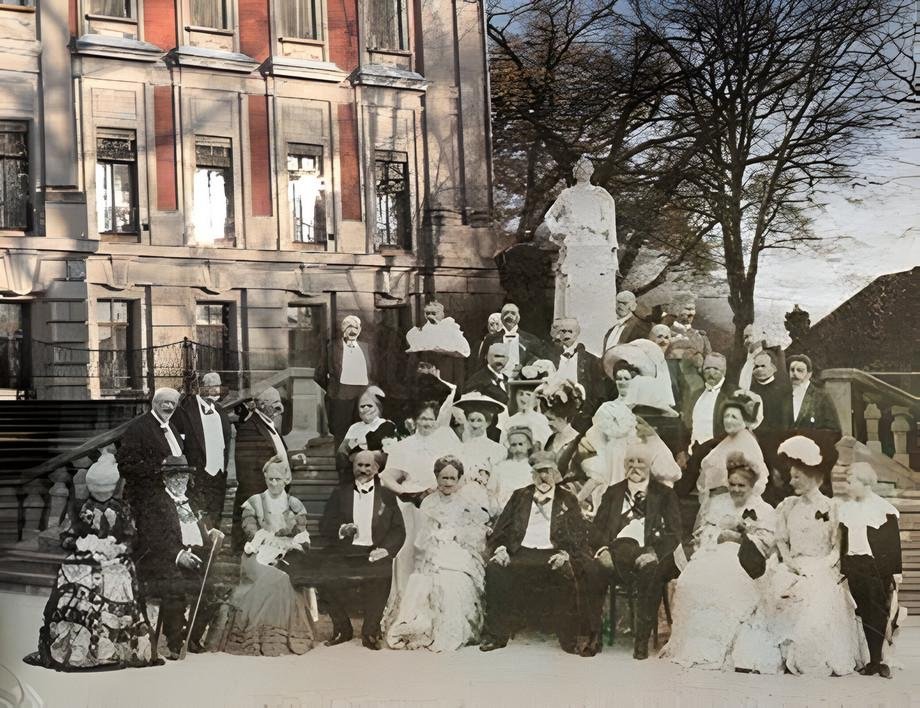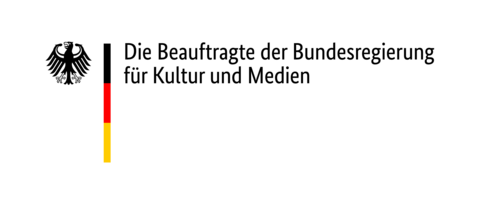Details
Silesian Aristocracy in the Twentieth Century: Elite in crisis

Flight, expulsion and upheavals on account of two world wars: How did the "age of extremes" change the Silesian aristocracy? A German-Polish-Czech research project devoted itself to this question and produced a documentary in the process.
The 20th century was a time of massive political, social and economic upheaval, a time of transition from empire to democracy and the subsequent Nazi dictatorship as well as the demise of the former German provinces in the East after World War II. The events people experienced in these times ranged from flight and displacement on account of the totalitarian dictatorships and the cataclysmic upheavals of the two world wars all the way to unimagined wealth and democratic stability during the "Golden Age" and the "Trente Glorieuse" (Jean Fourastié) in the post-Second World War period. These contrasting experiences are what make the period from 1914 to 1989 an "age of extremes" (E. J. Hobsbawm).
Silesian aristocracy in the age of extremes
The research project "Adel in Schlesien - Szlachta na Śląsku" focuses on the Silesian aristocracy as a social group that was forced to revise its self-perception and reconsider its lifestyles more than Western European aristocracy after experiencing flight and expulsion. Count Gotthard von Ballestrem, for example, enjoyed a "well-sheltered" childhood in Friedrichswalde, Lower Silesia. The family fled to Vogelsberg in Upper Hesse in January 1945, where they lived as refugees.
"Even when we, my father as forest warden and we as children attending school, were without a castle and other accoutrements of supposed affluence or wealth – my father was wont to describe us 'as poor as church mice' – and lived a modest life, even then we were considered to be and experienced as different by many – we children by other children."
The research group documented his recollections on video. In addition to interviewing people who had witnessed history unfold, the project also studied the space that the Silesian aristocracy had shaped over centuries, meaning the places linked to the history of the Silesian aristocracy after 1945: castles and manors, parks, libraries and collections. Taking the material culture left behind by the Silesian aristocracy as an example, the historians asked themselves how politics of remembrance in the Polish People's Republic had associated Silesian aristocracy with nationally and socially laden connotations while co-opting and demonising them. The research group saw itself as part of recent aristocracy research efforts that sought to investigate the research object from the perspective of a history of elites within the context of a history of society in the broad sense. The main point was to explore the subject matter through the lens of a history of remembrance and a history of generations.
A subproject: Aristocracy without Land – Land without Aristocracy
At no other time in modernity and post-modernity was the disjunction between experience and expectation endured by the Silesian aristocracy as big as in 1945, when they were expelled and forced to flee. This subproject explored how the social and life-world upheavals since 1945 affected the lifestyles and self-understanding of the Silesian aristocracy. In addition, the historians analysed the policy of remembrance in the Polish People's Republic. Their particular focus was on places that echoed back to the times of the Silesian aristocracy.
The documentary film "Gloria und Exodus"
Director Andrzej Klamt accompanied the research project in 2013 and shot a documentary embracing the entire 20th century. The film "Gloria und Exodus: Die Geschichte des Schlesischen Adels" (Glory and Exodus: The History of the Silesian Aristocracy) featured interviews with people who had witnessed history unfold and presented researchers as well as archival and architectural testimonies. Klamt had previously directed the film "Die Schaffgotsch - Chronik einer vergessenen Adelsfamilie" (The Schaffgotschs – Chronicle of a Forgotten Aristocratic Family).
The research cluster "Aristocracy in Silesia"
The project was inspired by research on the period from the Middle Ages to the 19th century carried out between 2005 and 2008 by the research cluster "Adel in Schlesien - Szlachta na Slasku". That cluster had brought together cultural researchers from several universities and research institutions (Breslau/Wrocław, Dresden, Oldenburg, Passau, Stuttgart) under the supervision of art historian Jan Haraszimowicz (University of Wrocław) and historian Matthias Weber (Federal Institute for Culture and History of the Germans in Eastern Europe in Oldenburg).
Professor Thomas Wünsch, who holds the Chair of Modern and Contemporary History of Eastern Europe and its Culture, studied the Silesian aristocracy in the 20th century in collaboration with a group of researchers. Research in this area is sparse but sheds light on the social and cultural restratifications of modernity in a German-Polish frame of reference. He also supervised a Research Training Group on "Genealogie und Repräsentation. Formen und Funktionen adeliger Kultur im Schlesien der Neuzeit (14. bis 19. Jahrhundert)" (Genealogy and Representation: Forms and functions of aristocratic culture in modern Silesia [14th to 19th century]). In 2009, the University of Passau dedicated a conference to this topic. The conference was called: "Schlesischer Adel im 20. Jahrhundert. Krisenerfahrung, Elitentransformation und Selbstverständnis im 'Zeitalter der Extreme" (The Silesian Aristocracy in the Twentieth Century: Crisis Experiences, Transformation into an Elite and Self-Perception in an Age of Extremes).
The research results are being published in a series supervised by Mathias Weber (Federal Government Commissioner for Culture and Media): "Adel in Schlesien - Szlachta na Śląsku" (Aristocracy in Silesia) by the publisher Oldenbourg.
| Principal Investigator(s) at the University | Prof. Dr. Thomas Wünsch (Lehrstuhl für Neuere und Neueste Geschichte Osteuropas und seiner Kulturen) |
|---|---|
| Project period | 01.01.2013 - 31.12.2013 |
| Website | http://www.uni-passau.de/adel-in-schlesien/ |
| Source of funding |  BKM - Beauftragte/r der Bundesregierung für Kultur und Medien |
| Projektnummer | IIA8-2513DK0500 |
| Themenfelder | Geschichte, Neuere und Neueste Geschichte (einschl. Europäische Geschichte der Neuzeit und Außereuropäische Geschichte) |
| Förderhinweis | Funding for the 2010-2013 programming period was approved by a resolution of the German Bundestag and provided by the Federal Government Commissioner for Culture and Media. |

